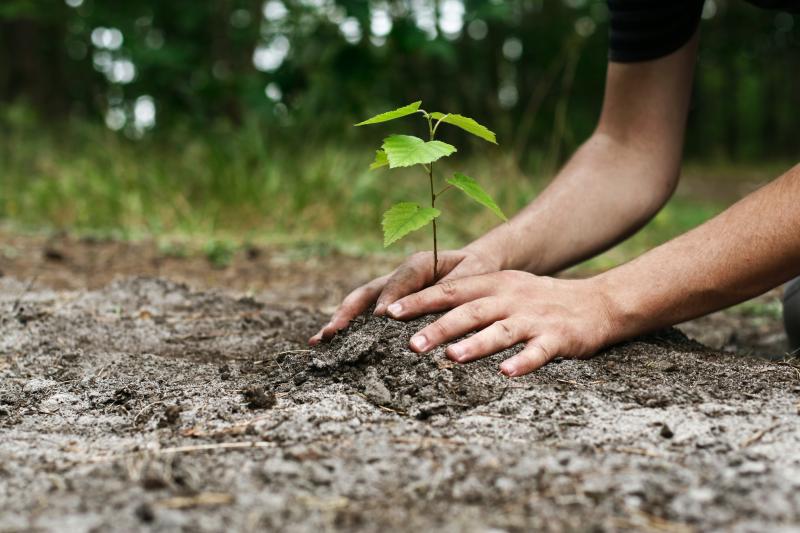08 Jun 2020
The problem
Towns and cities are losing green space and there are many benefits to planting trees and creating wild spaces in and around urban areas. We’ve noted concerns about the long-term viability of the supply of native trees given the upsurge of interest in tree planting . And there's a growing shortage of native species, important for supporting local habitats and maintaining diversity.
The challenge
How can we ensure a supply of tree species with a local provenance, building local income streams at the same time as preventing the gap being filled with imports to meet targets, that risk spreading disease?
The idea
People value trees and there's growing enthusiasm for local community tree planting. What if we could increase the supply, ensure a resilient urban forest and generate revenue for local communities by training local people in planting and growing on native trees?
How does it work?
Start by mapping local demand. What trees are likely to be most suitable? Local tree-planting projects and biodiversity officers from the Local Authority will be good source of information.
Build your team. Hold a nature-related outdoors activity in the centre of a residential neighbourhood. Use it as a focus to engage people and start conversations about tree planting to promote interest.
There are two ways this could work. The first is a distributed model, much like that adopted by the Green Belt movement in Kenya. Invite residents to a workshop to increase knowledge and develop skills – showing people how to plant and care for a tree. They take seeds or whips (young trees) home. Participants register their details so that they can be contacted in the future by people organising planting. They look after their trees for around 3 years until they are ready to be planted out. This model doesn’t require any space – but it would need a lot of coordination.
Alternatively you could set up a community-owned collaborative micro-nursery. Residents identify a suitable piece of land – a small patch, no bigger than an allotment would be fine, or a field corner - and establish a ‘micro-nursery’ where they tend the saplings together. Some of these could then be sold to planters to generate income to support the maintenance of the project. Grow Wilder already operates a model like this for native plants in Bristol in support of Avon Wildlife Trust.
Benefits
- An increased supply of new native trees for local planting.
- Build community cohesion around tree planting and growing.
- Creates a source of revenue for the local community.
- Learn from what works, use the money generated to invest in and set up more micro-nurseries.
- Growing things together and being outdoors is good for well-being.
- Bringing unwanted bits of urban space into productive use.
- It may be appealing to a private landowner who does not want to commit to long term afforestation as this could devalue land for other uses, but could be willing to host micro-nurseries as a temporary measure.
How do we know it works?
We haven’t set up a micro-nursery although there was a pledge to do so at a recent workshop. We know there is a shortage of young native trees as confirmed by the Woodland Trust. We know through our 10xGreener experiments that locals like to meet and get to know neighbours and growing things can be attractive.
We also know that in the COVID-19 context established nurseries have been looking for communities to provide homes for unwanted whips – and that in some places communities have stepped forward to provide temporary accommodation for hundreds of trees, looking for a better future in the next planting season.
Impact measurement
Number of micro-nurseries set up. Number of people engaged. Amount of trees successfully grown on and sold. Revenue generated.


